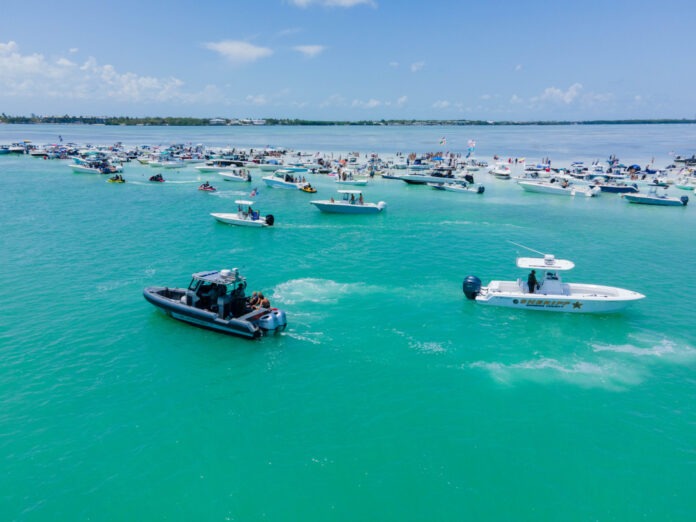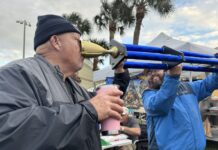
In 2022, the Florida Fish and Wildlife Conservation Commission (FWC) announced the state reached 1 million registered boats by recreational users.
If you add in the number of commercial boats for charters, flats guides, trap fishers and pleasure cruises, that equals a ton of boats out on the water.
Everyone needs a driver’s license to drive a car legally, but unbelievably, there is very little required to operate a boat — or even rent one. Unfortunately, Florida also leads the nation in boating fatalities and boating accidents. There were 81 boating fatalities in Florida in 2024 and FWC found 65% of the boat operators involved in fatal accidents did not have any formal boater training.
In 2024, Monroe County ranked No. 1 for boating accidents, followed by Miami-Dade County. Of course, we have a lot of coastline and we can boat year-round; however, knowing how to safely operate a boat and having the necessary safety equipment can prevent accidents and save lives.
Anyone born in 1988 or after is required to take a boater safety course and have a boat safety ID card when operating a powerboat over 10 horsepower. Luckily, there are many free online courses and the FWC has links to all of the approved boating courses at https://myfwc.com/boating/safety-education/courses/.
The local U.S. Coast Guard Auxiliary and Key West Power Squadron offer online and in-person classes regularly. Boat USA has free online courses. Some insurance companies offer discounts for completing boating courses. The Florida Keys National Marine Sanctuary has a free online boater education course that is very useful to learn specific regulations that exist in waters of the Florida Keys, with course topics on zones and special protection areas, protecting our resources and the consequences of careless boating.
When you own a boat, you know there is a lot of required safety equipment, and it is a good idea to make sure it is all up to date and in working order. On a friend’s boat, ask if they have the required safety equipment since safety is a priority. Flares expire every 42 months (or 3.5 years). Three unexpired flares are required on boats 16 feet and over in length. You can keep the older expired flares onboard, but they do not count toward the required three unexpired flares.
The Monroe County Sheriff’s Office will accept expired flares. Do not dispose of them in household waste, since they are a fire hazard.
One life jacket per person is required in addition to at least one throwable floatation device. Boats over 26 feet need to have a fire extinguisher. Boaters must maintain a distance of at least 300 feet from diver-down flags on open waters — that is the distance of a football field (not including the endzones) and at least 100 feet from diver flags on rivers, inlets or navigation channels.
Boaters must slow down around snorkelers, divers and swimmers. A diver-down flag is required from a vessel when there are snorkelers or divers in the water.
Kayakers and stand-up paddle boarders – there are also requirements for you. While on the water, you need to have a lifejacket and a noisemaking device on-board. Keep a whistle on your personal flotation device and that will suffice. Between dusk and dawn, a flashlight or headlamp must be on to alert other boaters of your location. Avoid loitering in navigation channels. Boats need time to stop, and navigation channels in the Florida Keys are very narrow, typically with seagrasses and shallow water on both sides.


















